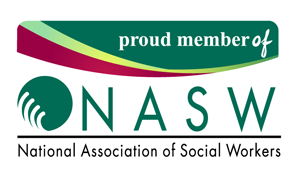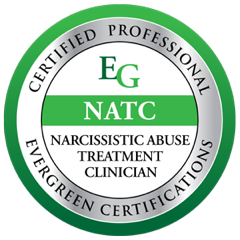ADHD and Counterwill: Engaging Your Resistance
Have you ever felt an overwhelming sense of resistance, even when you know you want or need to get something done? For many individuals with ADHD, this natural tendency to resist—called counterwill—is all too familiar. It’s like an invisible force standing between you and action, adding another layer of complexity to everyday challenges.
Understanding counterwill is an essential step in managing ADHD effectively. Once you’re aware of why it happens and how to engage it, you can start transforming resistance into progress.
What is Counterwill?
Counterwill is a term coined by Dr. Gordon Neufeld and refers to a natural, instinctive opposition to being controlled or coerced. But for those with ADHD, it often surfaces as an internal battle—a resistance triggered by internalized expectations, perfectionism, or even the fear of failure.
For example, you might struggle to begin a project despite being genuinely excited about it. Or you may resist completing a task because the sense of urgency sparks overwhelm. Counterwill isn’t just procrastination; it’s a deeper behavioral response tied to executive function challenges like emotional regulation, prioritization, and motivation.
Why Does Counterwill Happen in ADHD?
Executive Function Struggles
ADHD impacts your brain’s ability to regulate tasks like planning, organizing, and starting work. When faced with something you should be doing, these executive functions may falter, stalling your momentum.
Fear of Failure or Disappointment
Many individuals with ADHD experience “analysis paralysis” due to the fear of not meeting expectations. This creates internal resistance, making it harder to act.
Overwhelm and Burnout
ADHD brains often face overstimulation, which can amplify feelings of overwhelm. Instead of navigating the overwhelm, counterwill steps in as a protective mechanism, pulling you away from the situation entirely.
Sensitivity to Control
People with ADHD often struggle with feeling controlled—whether that control comes from external voices or internal pressures. Counterwill reacts to this sensation by resisting, even if the task aligns with personal goals.
Strategies for Managing Counterwill
Fighting counterwill head-on usually backfires. Instead, focus on tools and strategies that acknowledge and engage this resistance, paving the way for greater ease and productivity.
Start with Awareness
Take a moment to identify when counterwill is happening. Ask yourself:
- “Why am I resisting this task?”
- “Is it fear, overwhelm, or something else holding me back?”
Naming the feeling behind the resistance is the first step toward addressing it.
Break Tasks into Micro-Steps
Overwhelm often fuels counterwill, but breaking tasks into smaller, manageable steps reduces its power. For example, instead of “Complete the report,” try:
- Open the document.
- Write one bullet point.
Celebrate small wins and build momentum gradually.
Create Gentle Self-Accountability
Turn internal resistance into curiosity. Instead of saying, “I must finish this,” try reframing with, “What’s one small thing I can do today?” Consider sharing progress with someone supportive to nurture accountability without pressure.
Use External Cues and Timers
External structure can help bypass counterwill. Tools like visual timers, alarms, or scheduling apps can prompt action without overwhelming your ADHD brain. For instance:
- Set a timer for 10 minutes and commit to simply working within that time frame.
Experiment with Novelty and Rewards
ADHD thrives on novelty and immediate gratification. Offset counterwill by:
- Making tasks more engaging (e.g., adding music or turning them into a game).
- Rewarding yourself for completing steps (e.g., after 30 minutes of work, take a 15-minute coffee break).
Build a System with Compassion
Work with your ADHD tendencies instead of against them. If rigid planning triggers resistance, create flexible systems that allow adjustments. Structure doesn’t have to feel restrictive—it can simply be a supportive framework.
Finding Support and Building Community
Managing counterwill and ADHD doesn’t have to be a solo effort. Working with a coach or joining a community of like-minded individuals can provide consistent, encouraging guidance. At Thrive Connect Coaching, we specialize in helping individuals with ADHD develop tailored strategies for productivity and self-compassion. Together, we can transform resistance into a stepping-stone towards success.
If you’re ready to explore new approaches to engaging your ADHD resistance, we’re here to help. Learn more about how individualized coaching can unlock clarity and progress for you.
Moving Forward with Intent
Counterwill may feel like an unmovable wall at times, but it’s really just a part of your ADHD brain asking for a new approach. By integrating awareness, compassion, and tailored strategies, you can begin engaging your resistance in a productive, self-affirming way.
Remember, every small step you take is progress. The most important thing isn’t doing it perfectly; it’s about starting where you are, with the tools and support you need to move forward.
Are you ready to unlock the next chapter of your ADHD management? Reach out for a free consultation and discover what’s possible when you move past resistance and step into engagement.
Questions to Connect With
- Identify Your Resistance Patterns:
Take a few minutes to reflect on a situation where you experienced counterwill. What were the emotions or thoughts that accompanied this resistance? Were there clear triggers, or did the resistance feel more abstract? Write down your observations without judgment. This exercise is about recognizing your patterns, not fixing them immediately.
- Reframe the Narrative: Think about a task or challenge you’ve been avoiding. Now, imagine what this resistance might be trying to tell you. Is it asking for a gentler approach, more clarity, or an adjustment to your environment? Write a compassionate statement to yourself about why it’s okay to feel this way and one small, manageable step you can take to engage differently.
- Visualize Progress with Self-Compassion: Close your eyes and envision yourself overcoming a moment of resistance. What does it look like when you approach the task with clarity, curiosity, and kindness? Picture the feeling of even the smallest success. Spend a few moments absorbing this image, and when ready, jot down one or two affirmations to carry forward with you.
















